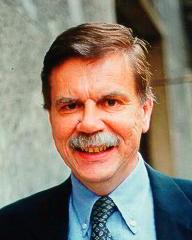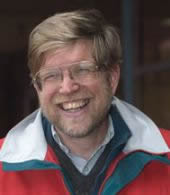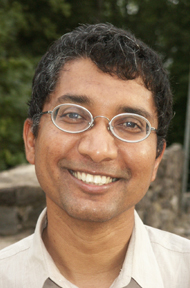Keynotes
Search Computing
Stefano Ceri (Politecnico di Milano, Italy)
"Who are the strongest European competitors on software ideas? Who is the best doctor to cure insomnia in a nearby hospital? Where can I attend an interesting conference in my field closest to a sunny beach?" This information is available on the Web, but no software system can accept such queries nor compute the answer. We hereby propose search computing as a new multi-disciplinary science which will provide the abstractions, foundations, methods, and tools required to answer these and many similar queries. While state-of-art search systems answer generic or domain-specific queries, search computing enables answering questions via a constellation of dynamically selected, cooperating, search services. Search computing requires innovation in software principles, languages, interfaces, and protocols, as well as contributions from other sciences such as mathematics, operations research, psychology, sociology, economical and legal sciences.
 |
Stefano Ceri is professor of Database Systems at the Dipartimento di Elettronica e Informazione (DEI), Politecnico di Milano; he was visiting professor at the Computer Science Department of Stanford University between 1983 and 1990. He is vice-chairman of Alta Scuola Politecnica, a school of excellence for master-level students which is jointly organized by Politecnico di Milano and Politecnico di Torino. He is an associated editor of several international journals, co-editor in chief of the book series "Data Centric Systems and Applications" (Springer-Verlag), author of over 250 articles on International Journals and Conference Proceedings, and co-author of nine international books. |
Why can’t I find my data the way I find my dinner?
David Carlson (IPY International Programme Office, Cambridge, UK)
The success of the International Polar Year, particularly its unprecedented breadth of science, shines a bright light on the challenges and opportunities of modern information technology. IPY researchers produce data ranging from genetic sequences to cosmic neutrino energy levels, over a broad range of time and space scales, in disparate coordinate systems, and with varied traditions and experience of data sharing and data management. We can not say with confidence where these invaluable data will reside for use by future generations of polar and planetary researchers. Meanwhile, smart search engines, pattern recognition and data mining tools, multi-gigabyte personal storage devices, and advanced animation capabilities, coupled with almost unlimited mobile bandwidth, offer expansive and amazing information access to many citizens. However, this array of access technology remains certainly beyond the means, and often not even in the plans, of most scientific data centres. What changes in strategy, funding, and individual and collective behaviour need to occur to allow me to browse, view and access IPY data on my iTouch?
 |
David Carlson is currently the Director of the International Programme Office of the International Polar Year since May 2005. He has served as Director of the Atmospheric Technology Division of the US National Centre for Atmospheric Research (NCAR) Colorado for nine years (1994-2003), where he led a group that provided observing tools to weather, climate, and air quality research around the world. Prior to that he was for three years (1990-1994) the Director of the office coordinating the 'Tropical Ocean Global Atmosphere Coupled Ocean - Atmosphere Response Experiment' (TOGA COARE), leading oceanic and atmospheric scientists from twelve nations in a large ICSU/WMO climate research programme focussed on the western Pacific and global teleconnections. David holds a PhD in Oceanography from the University of Maine and was a Professor of Oceanography at Oregon State University until 1990. |
Data Management in the Cloud
Raghu Ramakrishnan (Yahoo!, Sunnyvale, CA, USA)
We are in the midst of a computing revolution. As the cost of provisioning hardware and software stacks grows, and the cost of securing and administering these complex systems grows even faster, we're seeing a shift towards computing clouds. Clouds are essentially services accessed over a network, and offer developers scalable, robust computing infrastructure on a "pay as you go" basis, with the ability to dynamically adjust the amount of "rented" resources, and thereby, the bill. For cloud service providers, there is efficiency from amortizing costs and averaging usage peaks. Internet portals like Yahoo! have long offered application services, such as email for individuals and organizations. Companies are now offering services such as storage and compute cycles, enabling higher-level services to be built on top. In this talk, I will discuss Yahoo!'s vision of cloud computing, and describe some of the key initiatives, highlighting the technical challenges involved in designing hosted, multi-tenanted data management systems.
 |
Raghu Ramakrishnan is Chief Scientist for Audience and Cloud Computing at Yahoo!, and is a Research Fellow, heading the Web Information Management group in Yahoo! Research. He is Professor of Computer Sciences at the University of Wisconsin-Madison (on leave), and was founder and CTO of QUIQ, a company that pioneered question-answering communities, powering Ask Jeeves' AnswerPoint as well as customer-support for companies such as Compaq. Ramakrishnan's research is in the area of database systems, with a focus on data mining, query optimization, and web-scale data management, and has influenced query optimization in commercial database systems and the design of window functions in SQL:1999. His paper on the Birch clustering algorithm received the SIGMOD 10-Year Test-of-Time award, and he has written the widely-used text "Database Management Systems" (with Johannes Gehrke). Ramakrishnan is Chair of ACM SIGMOD, on the Board of Directors of ACM SIGKDD and the Board of Trustees of the VLDB Endowment, and has served as editor-in-chief of the Journal of Data Mining and Knowledge Discovery, associate editor of ACM Transactions on Database Systems, and the Database area editor of the Journal of Logic Programming. Ramakrishnan is a Fellow of the Association for Computing Machinery (ACM) and the Institute of Electrical and Electronics Engineers (IEEE), and has received several awards, including the ACM SIGKDD Innovations Award, the ACM SIGMOD Contributions Award, a Distinguished Alumnus Award from IIT Madras, a Packard Foundation Fellowship in Science and Engineering, and an NSF Presidential Young Investigator Award. |

